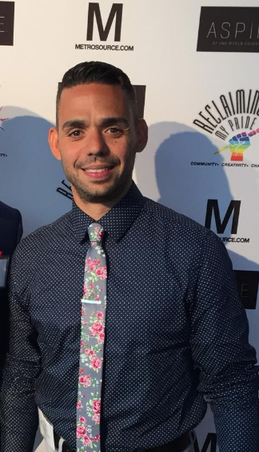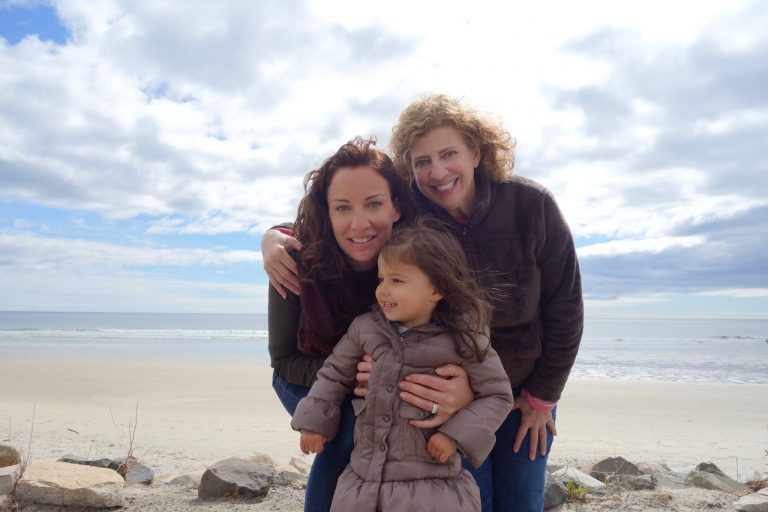|
Did you know that up to 40% of the homeless youth in this country identify as LGBTQ? Many of these children are homeless because their parents have rejected them merely based on their sexual orientation. Homeless youth are at a greater risk of violence, sexual assault and exploitation. One organization’s mission is to protect these children from harm and help empower them to live independently, and that organization is the Ali Forney Center. Alexander Roque, a SSP dad, is their Director of Development and oversees all of their donor programs. Please read and share this with your friends. We all need to think about how we can help this incredibly important organization and the innocent children they support. SSP: Can you please tell us about the organization you work for, the Ali Forney Center? What is your mission? AFC is the nation's largest and most comprehensive provider of services and housing for homeless lesbian, gay, bisexual, and transgender young people. Our mission is to protect homeless LGBTQ youth from the harms of homelessness while providing them with the tools they need to rebuild their lives. LGBTQ youth are eight times more likely to experience homelessness than non LGBT youth. Once homeless, these young people are eight times more likely to experience violence, substance abuse, HIV infection and tragically suicidal ideation. In NYC there are an estimated 4,000 homeless young people on our streets. AFC provides care for nearly half who identify as LGBTQ. Family rejection is the leading cause of LGBTQ youth homelessness. Please watch this moving video of Alex presenting an award to Lady Gaga and Lady Gaga’s mother, Cynthia, who Alex says “shared kindness and love with our kids in only a way a parent can”. SSP: Why is this cause so important to you, personally? As a parent, I struggle with comprehending how families reject their children for any reason but more so I cannot understand how a parent can reject a child because of their LGBTQ identity. Having experienced family rejection because of my identity I am particularly empathetic to the young people we provide care for. Above all, the issue of youth homelessness is one we should all be concerned with. Homeless populations, particularly homeless youth, need our support and care beyond a donation of cash. SSP: Can you please share a little more about how that very personal experience led you to where you are now? Generally, my childhood and what I was exposed to led me to a career of caring for others, and more specifically working to improve the lives of young people - prior to joining the Ali Forney Center I worked for a national organization that dealt with a neurodegenerative brain disease - Huntington's Disease. And, before that I worked for a program of the 11th Judicial Circuit Court providing care for children who were abused abandoned or neglected by their parents. Specifically, I grew up in Miami, Florida as a first generation Cuban-American immigrant. Both my parents were religious and expressed their homophobia and transphobia very openly at home - in fact, family rejection rooted in religious beliefs is the leading cause of LGBTQ youth homelessness - about 90% of the homeless LGBTQ youth population identify religious believes of their parents as the reason for their homelessness. My father in particular threatened me with abandonment (kicking me out of my home) if I were gay. When he suspected that I was gay he sent me to a therapist for psychiatric care - as a result I grew up rejecting my identity and in fear of family rejection. SSP: Did you always know you wanted to help gay youth? Having moved out at a very young age and building my own community of support and acceptance, I sought refuge and empowerment in helping others - primarily young people - be it LGBTQ or not. I always knew that my upbringing was not normal nor was it one I deserved, as such my work circles largely around helping youth who are underprivileged, underserved, or otherwise disenfranchised from acceptance, and love. SSP: What programs do you offer at your center for the LGBTQ youth? I understand you also offer shelter? In addition to providing shelter and housing services, AFC offers a continuum of services specifically designed to help these young people thrive and overcome the trauma of family rejection and the harms of street homelessness. This includes medical and mental healthcare through our onsite medical clinic, substance abuse treatment, career and educational support in a classroom environment, support group services, leadership development, advocacy training, peer led services, and other vital care. We also do a lot of work around sex trafficking and sex work. In the US more than half of homeless youth are propositioned for sex within 72 hours of being homeless-- typically sex in exchange for food, shelter, or money. Nearly 87% of the young people who come to us indicate they have engaged in commercial sex to survive. In total, we connect with over 1,700 young people annually who are forced into homelessness. Nearly 50% of our clients come to us from New York, 45% come to us from across the country -- mostly the south, and 5 % come to us from outside of the US. SSP: Can you tell us a little about Project Birthday? Project Birthday is a program I launched when I worked with children in the dependency system -- these are young people who were abused, abandoned and/or neglected by their parents. I learned that children in the court system did not celebrate their birthday, and worked with a board member on developing funding that would allow us to celebrate birthdays. When I joined AFC in 2011 I knew I wanted to introduce this program but I wasn't able to amass the funding necessary to make it possible. Earlier this year, I was fortunate to work with a donor and board member on introducing the program. Each month, we host an agency-wide celebration where we celebrate all birthdays that month. Each young person who has a birthday that month receives a birthday card, a gift card to Target, a certificate for a cupcake at Sprinkles, and a birthday celebration with other friends celebrating their birthday. Above and beyond the gift and the time we spend celebrating the birthday, we are able to celebrate this young person's life. We are able to remind them that they are valued, important to us, and loved. SSP: What has been the most meaningful and impactful experience you’ve had while working the Ali Forney Center? For me the greatest impact and most meaningful part of my work has been the thousands of people that I have connected to our work over the years. Telling our story, educating others about the realities of our homeless young people, and engaging the community in this work is particularly meaningful because our young people need us - not just for funding - but to remind them that even though their parents/families have rejected them they are valued, and celebrated just as they are. Connecting our community to our work demonstrates for them that they can build new families and new lives, and even though their family rejection may be painful, there is a family waiting for them. SSP: Funding must be more important now than ever, as I understand certain federal grants are ending this year. How can we get involved, can we volunteer? And how does one donate? Volunteering, telling our story, liking us on FB and sharing our posts are all ways you can help us. Attached are group volunteer opportunities but there are also individual volunteer opportunities. I personally volunteer once a month in Sunset Park and once a month in Harlem. There are over 18 sites where individuals can volunteer. Donations can be made online on our website at www.aliforneycenter.org or on our Facebook page.
2 Comments
|
Jen Valu
|
||||||



 RSS Feed
RSS Feed




